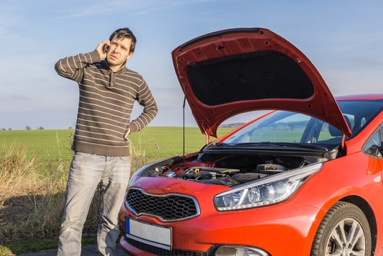Buying a car can be both exciting and terrifying.
We all know people who have horror stories about buying a car that turns out to be a dud, just in time for the original owner to mysteriously disappear. Ideally, we would all like to be able to buy a car and just know that it’ll work, which is why many people buy cars from dealerships instead of private sales, but not everyone has the extra money needed for that. So what are you to do? You could go to a business such as Cars and Co Auto Broker and find your car on there, or you can read on and finish our list of things to avoid when buying a car.

Suspiciously Low Odometer
The odometer is the instrument in the car that measures the number of kilometers that the car has done. A car from the 1990’s should have around 100,000kms on the odometer, as it’s older and has done plenty of driving around. This means that if you encounter one that has the usual wear and tear on the outside, but something like 20-30 thousand kms on the odometer there might have been a serious accident in which the odometer was replaced. Usually this indicates suspicious activity.
Strange Engine Sounds
If you have a listen and the car makes some strange sounds, that can be a warning.
Many cars develop their own “sounds” over the years, but anything that stands out should be checked by a mechanic that you trust. Loud knocking sounds or screeching sounds can be harbingers of major problems with the engine itself, so pay attention to the running sounds of the car BEFORE you buy it.
No RWC
A private seller offering a car without a RWC or Roadworthy Certificate is often something to be wary of. Many people will say it’s roadworthy because it’s registered, but that doesn’t mean it has been recently deemed roadworthy, just that the registration has been maintained since it was. A roadworthy car can receive a certificate without too much fuss or too much cost, so the seller should be happy to provide one if they have nothing to hide.
No Registration
This ties into the previous point about roadworthy certificates, because an unregistered car might just be a roadworthy car that has run out of registration, or it might be an unroadworthy car that needs lots of repair work before it will run again, making it a project car rather than a viable transport option. Steer clear of unroadworthy, unregistered cars if you’re looking for an immediate vehicle to transport.
Damaged, Obscured or Removed VIN
The Vehicle Identification Number or VIN is a number etched onto a metal plate on the engine of the car, and on the chassis of the car. These number should match up unless the engine has been swapped out, and they are important in identifying all cars no matter what. A scratched off or removed VIN plate can indicate a stolen car, which you can get in trouble for owning, so be sure to check the VIN plates before you buy your prospective vehicle.
“Quick Decisions”
Some sellers will make you feel like you need to rush into this decision.
They’ll tell you they’ve got other buyers waiting, the price can’t budge, there’s no time to do RWCs or VIN checks, and that they need to know right now if you want the car or not.
The truth is, these people usually want a fast sale,there are no other buyers and they have all the time in the world. If the seller tries to rush you, it’s time to take a step back and ask yourself if there really isn’t any time to do these essential checks, or if you’re being swindled.
Following these tips can help keep the vehicles you purchase running smoothly and prevent any shady deals from landing on your shoulders.

